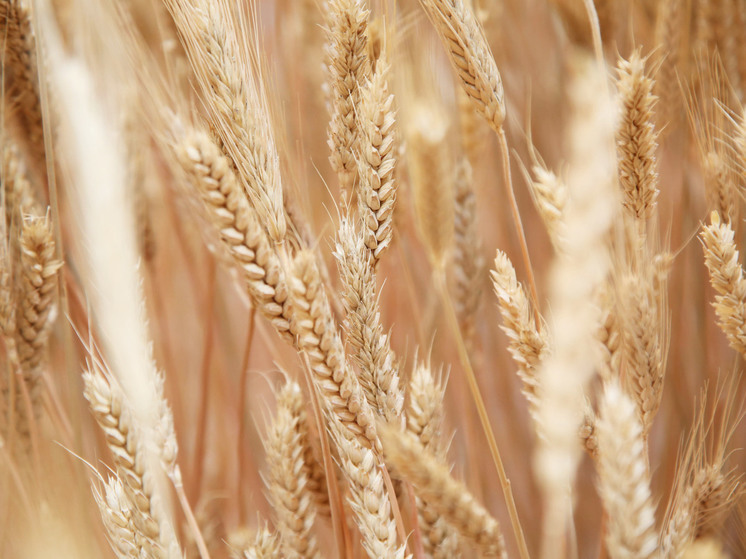“Rehearsal for nuclear winter”: gardens, as well as wheat seedlings, were damaged
A state of emergency has been introduced due to frosts in three regions of Russia — Lipetsk, Tambov and Voronezh. It seems that the scale of the disaster that domestic farmers are now suffering is enormous. In the central part of the country, the agricultural complex lost at least half of the harvest of apples, pears, cherries and other fruits: sub-zero temperatures hit at the very peak of flowering. There will definitely be losses in the harvest of grains, legumes, and oilseeds.

According to Lipetsk governor Igor Artamonov, the rampant disaster led to “catastrophic consequences.” In particular, in the Krasninsky district on the night of May 4, the air temperature dropped to minus 5 degrees, which caused the destruction of crops. “Early seed germination and flowering, caused by abnormally warm weather in April, made the plants more vulnerable to frost,” Artamonov explained. And he warned: the harvest in 2024 will be significantly lower than in 2023, which is why the region will need help from the federal center.
In the Voronezh region, according to preliminary estimates of the regional Ministry of Agriculture, the area of dead or severely damaged crops due to cold weather, it exceeded 265 thousand hectares.
Damage in central Russia is ten out of ten on a scale of ten, says Igor Muhanin, president of the Russian Gardeners Association. According to him, gardeners were preparing for frost — “they smoked, sprayed, used growth regulators and amino acids.” But on the night of May 6–7, the frost was minus 6 degrees, which had not happened for a long time at the peak of flowering. And since the frosts have not yet subsided, the picture of losses will finally become clearer only with their completion.
According to the Ministry of Agriculture of the Russian Federation, in 2023, the agro-industrial complex (private garden plots do not count) set a new record for fruit collection and berries — more than 1.75 million tons of products. This is 1.9% more than in 2022.
The list of main crops grown in the Russian Federation includes apples, plums, cherries, sweet cherries, apricots, currants, raspberries and strawberries. According to experts, blossoming flowers and ovaries are extremely sensitive to even slight frost. Let's say, for apple and pear trees the limit is from -1.6 to -2.2 degrees Celsius, for plums and cherries — from -0.5 to -2.2. A threat to flowering fruit trees is posed not only by unexpected cold weather, but also by snowfall. It knocks down pollen, moisturizes it, and bees and other pollinating insects do not fly under the snow.
“Nature is showing us a rehearsal of nuclear winter,” Igor Abakumov, host of the “Rural Hour” program, Candidate of Economic Sciences, gloomily jokes in a conversation with MK. – About half a million hectares have been affected by frost in the Lipetsk, Tambov and Voronezh regions. First of all, the orchards, as well as the wheat seedlings, were damaged. For some this will be a problem, for others it will be luck. Well, dialectics, a normal market process. Regions that were spared frosts will increase selling prices for their grain products. But I also exclude a global catastrophe. There is a lot of cultivated area in Russia, and redistribution will happen one way or another. In addition, we have large carryover reserves of grain.
— It’s hard to say, because several days have passed since the beginning of the frost. The information has not been collected, the field revision has not yet been completed. After May 15, when the cold will definitely not return, it will be necessary to do an analysis, see how much the grain balance (debit-credit ratio) has changed, and study the possibilities of replanting and reducing exports. In any case, an increase in purchase prices for wheat cannot be avoided. With fruit trees, the picture is clearer: you can’t replant them and you can’t replant them. Most likely, imports of apples, pears, plums, and so on will increase. We need to think about this now and conclude contracts.
— They were also “beaten”: the greenhouse no longer holds a temperature of less than -5 degrees. And our May night frosts reached -11. Overall the situation is very tense. Not all households were insured, and those who were insured will not receive the compensation they expected. Insurance companies will look for all sorts of clues: they say, not your entire field was destroyed, but only partially.
— No preventable: this is a natural phenomenon, you can’t do anything about it. Previously, in Soviet times, they prepared straw for spring night frosts, brought it to the gardens, lit it, and escaped with this smoke. Now this is not accepted everywhere, I only saw it in the west of Crimea. Local farmers traditionally import straw by May; they have this written down in their technological diagrams. The bale or roll is set on fire in the middle, smoldering quietly and producing a lot of smoke. But there is no absolute guarantee: the wind may blow in the wrong direction. In modern industrial gardens, for example, in the Lipetsk and Voronezh regions, this option is not provided. I called several large gardeners, they say that the fruit harvest was not lost one hundred percent, but partially — mainly on the upper tiers of trees. True, the tree has spare buds and can bloom again.


